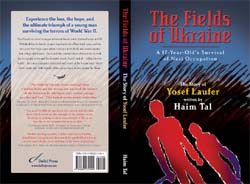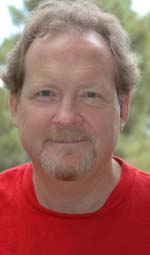Article
ATM veteran translates Holocaust story, promotes book in U.S.
ATM pioneer Sam Jonas says he's taking a break from payments to fulfill a personal mission.

August 17, 2009 by Tracy Kitten — Editor, AMC
The ATM marketplace has changed quite a bit since its boom in the mid-1990s. Market consolidation and, arguably, market saturation have pushed many ATM veterans in non-ATM directions. But only one of them stands out among the crowd — for his pursuit to fulfill a deeper mission that has nothing to do with financial services and a lot to do with personal conviction.
Sam Jonas is known among his ATM colleagues for founding ATM ISO Cash Resources in 1993, which he sold in 2002, and the prepaid card company Cellcards, which he sold to Coinstar in 2004. He also helped to fuel the growth of PayQuick, a third-party money-transfer company founded in 2000 and sold to Citibank in 2008. Now Jonas says he's taking a break from the financial services business to focus on publishing a work that he holds close to his heart.
"I do not see myself becoming an author or publisher," Jonas said, "yet I do see myself putting the time into promoting this book. I will end up in the payments space again; it's a business I know and a business I love. But for now, I will focus on this."
The book to which Jonas refers is one that has special meaning — it's the biography of Yosef Laufer, a Holocaust survivor from Zurawno, Ukraine. The connection for Jonas is a grandmother, Lottie Spinner Jonas, who lived in Zurawno but luckily left the village before World War II.
Curious about this village in Eastern Europe, from where the paternal side of their family heralded, Jonas and his brother Ted in 2003 spearheaded a genealogical quest that led them to Laufer.
A man on the run
 |
Laufer was 17 when he and his father escaped Nazi capture. For three years the duo lived like animals, as Laufer described it. They successfully evaded the Nazis with unimaginable determination and assistance from only a handful of people who had once been their friends and neighbors.
At the end of the war, when the Russians liberated Ukraine, Laufer volunteered with a local police auxiliary rather than joining the Red Army, as many of his peers did. Laufer said he joined the police auxiliary so that he could stay close to his father. But one day, after traveling to a neighboring village to sell and barter some goods, his father never returned. Laufer later fled to Israel, where he lived until his death in February of this year.
Jonas got to meet Laufer before his death, which coincidentally occurred on the same day "The Fields of Ukraine" went to print.
Telling the story
In 2003, after the sale of Cash Resources, Jonas, his brother Ted, and their cousins visited Zurawno. Ted, who lives in the former Soviet Union, was the first to hear about Laufer after visiting Zurawno in 1995.
 |
Sam Jonas |
A year after the visit, one of Jonas' cousins came across a book about Laufer called "As an Animal in the Field," available only in Hebrew. With a few tweaks and a handful of interviews, Jonas and his family reproduced "As an Animal in the Field" in English under the name "The Fields of Ukraine."
"We went over (to Zurawno) in 2003 and did some interviews with the locals," Jonas said. "And then we came across a book written in Hebrew about Laufer and it took three years for us to find Laufer and get rights from the author (Haim Tal) to translate it."
This "labor of love," as Jonas defines it, has been an interesting diversion that is just getting started. Marketing the book will be the hard part, Jonas says, but the story, he feels, is timely.
"It's intense work," he said. "And now is the process of getting the book out and getting the story told. We've had some great luck with a number of sources and a number of book distributors and retailers, and I'm learning the ropes of the book world, and that's new."
It's been a healthy and helpful diversion.
"Taking diversions and doing other projects, I believe, strengthens your ability in other businesses," Jonas said. "Going from the ATM business to the payments business and then to this project, I think they all add up to the store of knowledge that we all must possess to make the changes necessary for whatever the next step in our careers or lives will be."
Harry Popiel, one of Jonas' ATM distributors at Cash Resources before the portfolio's sale to eFunds, says he's anxious to see what Jonas will do next. Popiel, who has read the book, says Jonas' publishing foray will likely be short-lived, simply because Jonas is such a driven businessman.
"Will Sam come back to the ATM business? That, I don't know. Sam is a smart guy, and he's going to go where the business makes sense. I think the industry is going through the most trying time it's ever gone through," Popiel said. "But if someone could come up with a viable solution or way for ATM operators to move money, it would be Sam, and it could help the ATM industry.
He won't go fishing and retire, I know that much. He'll do something — I'm just not quite sure what."













